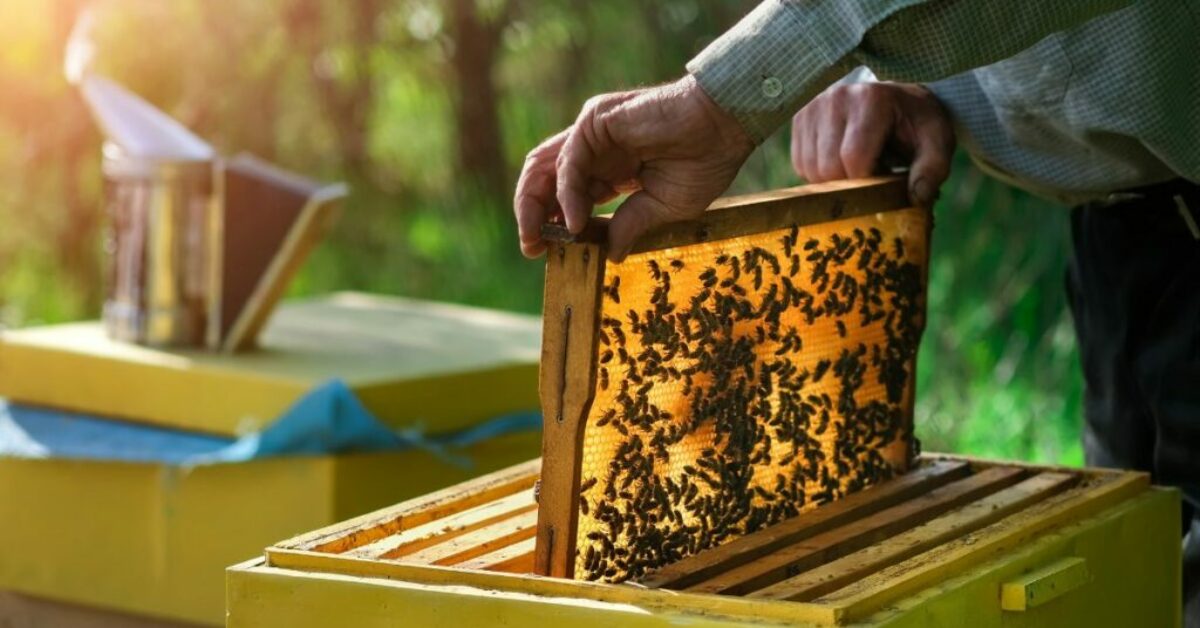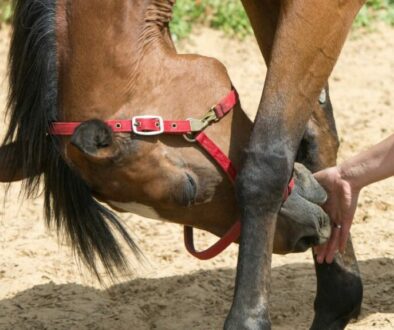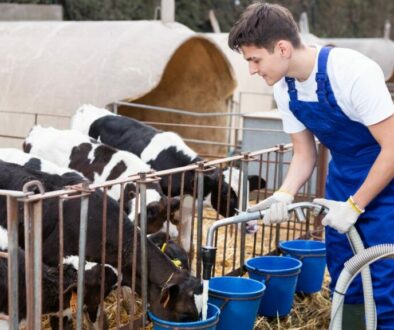How To Become A Beekeeper?
Beekeeping is an exciting and rewarding hobby, and it is not as difficult as you might think. Becoming a beekeeper takes dedication, knowledge and commitment. In this article, we will guide you through the essential steps and skills needed to become a successful beekeeper.
Steps To Becoming A Beekeeper
Before you embark on your beekeeping journey, it is essential to understand the steps involved in becoming a beekeeper. Beekeeping is a fascinating and rewarding hobby that not only provides you with fresh honey but also helps in the pollination of plants. Here are some additional details on the steps involved in becoming a beekeeper:
- Education
The first step to becoming a beekeeper is to educate yourself about bees and beekeeping. Bees are fascinating creatures that play a vital role in our ecosystem. You can attend beekeeping classes, workshops, and seminars in your area or join a local beekeeping association. These resources can provide you with valuable information on beekeeping techniques, equipment, and bee behavior. You can also read books, watch videos, and seek advice from experienced beekeepers.
Additionally, education on the importance of bees in our environment can lead to a greater appreciation for these creatures and their role in pollination. - Obtain equipment
After acquiring the knowledge, the next step is to gather the necessary equipment that you will be using in beekeeping. Beekeeping equipment can vary depending on the type of beekeeping you plan to do, but the must-have equipment includes hives, bee suits, gloves, veil, and a smoker.
It is essential to invest in high-quality equipment to ensure the safety of both the bees and the beekeeper. The equipment should be durable, easy to use, and easy to clean. Additionally, having extra equipment on hand can be helpful in case of emergencies or unexpected situations. - Choose a location for the apiary
Choosing an ideal location for the beehive is vital. The location should be easily accessible and have a good source of food and water for the bees. Bees need access to flowers and plants for nectar and pollen, so it is essential to choose a location with a variety of blooming plants.
Additionally, the location should be sheltered from strong winds and direct sunlight, as this can affect the temperature inside the hive. A location with a natural windbreak, such as a fence or trees, can be helpful. - Acquire bees
The final step to becoming a beekeeper is to obtain bees. You can acquire them by capturing a wild swarm or buying them from a reputable source. Capturing a wild swarm can be exciting but can also be dangerous for those without experience. It is recommended to purchase bees from a reputable supplier to ensure the health and safety of the bees.
When purchasing bees, it is important to choose a breed that is suited to your location and climate. Different breeds of bees have different characteristics, such as honey production, disease resistance, and temperament. Consulting with an experienced beekeeper or supplier can be helpful in choosing the right breed for your needs.
Skills Needed For Becoming A Beekeeper
Beekeeping is a fascinating and rewarding hobby that can also be a profitable business. However, it requires more than just setting up a hive and waiting for the bees to do their thing. There are specific skills that every beekeeper needs to possess to ensure success in beekeeping.
Patience
Beekeeping requires patience since it can take months before the bees can produce honey. It takes time for the bees to build up their colony and start producing honey. Additionally, it takes time and patience to learn the behavior and habits of bees. Beekeepers need to be patient and observant to understand the needs of their bees and to be able to respond appropriately.
Attention to detail
A beekeeper needs to pay close attention to their hives to ensure that the bees are healthy and happy. This involves regular inspections of the hives, checking for signs of disease or pests, and making sure that the bees have enough food and water. Beekeepers need to be able to spot potential problems early and take action to prevent them from becoming more serious.
Physical fitness
Beekeeping requires a certain level of physical fitness since it involves lifting heavy hives and equipment. Beekeepers need to be able to lift and move hives, frames, and supers, which can weigh up to 100 pounds. They also need to be comfortable working at heights, as hives are often placed on stands or raised platforms.
In addition to these essential skills, successful beekeepers also need to have a good understanding of bee biology and behavior, as well as knowledge of the local flora and fauna. They need to be able to manage their hives effectively, including controlling swarming and managing honey production. They also need to be able to market and sell their honey and other bee products.
Beekeeping can be a challenging and rewarding hobby or business. By developing the necessary skills and knowledge, beekeepers can help to support the health and well-being of bees, as well as enjoy the sweet rewards of their hard work.
What is A Beekeeper?
A beekeeper is someone who keeps and maintains honeybee colonies. It is a fascinating and rewarding hobby that has been around for centuries. Beekeepers are responsible for ensuring that their colonies are healthy and productive, and they play an important role in the pollination of plants and the production of honey.
When you become a beekeeper, you will need to learn about the different types of honeybees and how to care for them. You will need to purchase or build a hive, which is the home for your bees. The hive consists of several boxes stacked on top of each other, each containing frames where the bees will build their comb.
One of the most rewarding aspects of beekeeping is harvesting the honey and wax produced by your bees. This can be a messy and time-consuming process, but the end result is a delicious and natural sweetener that is prized by many.
Beekeepers also have the opportunity to sell or trade their hive products, such as honey, beeswax, and pollen. Some beekeepers even breed bees to sell to other beekeepers, which can be a lucrative business.
In addition to the practical aspects of beekeeping, there is also a rich history and culture surrounding this hobby. Beekeeping has been practiced for thousands of years, and there are many fascinating stories and traditions associated with it. From ancient Egyptian hieroglyphics to modern-day beekeeping conventions, there is always something new to learn and discover.
Overall, beekeeping is a wonderful hobby that offers many rewards. It allows you to connect with nature, learn new skills, and produce delicious and healthy products. Whether you are a seasoned beekeeper or just starting out, there is always something new to discover in the world of beekeeping.
The Benefits of Working as A Beekeeper
Beekeeping is not only an exciting hobby, but it also has numerous benefits. Here are some advantages of working as a beekeeper:
1. Honey production
Beekeeping provides an opportunity to produce honey, which can be consumed at home or sold for profit. Honey is not only a delicious natural sweetener, but it also has numerous health benefits. It is a great source of antioxidants, can help soothe a sore throat, and has antibacterial properties.
2. Pollination
Bees play a crucial role in pollination, which helps plants grow and produce fruits and vegetables. Without bees, many of the foods we enjoy would not exist. In fact, it is estimated that one-third of the food we consume relies on pollination by bees.
3. Educational and environmental benefits
Beekeeping can be used as a tool to educate others about the importance of bees and their role in the ecosystem. By keeping bees, you can learn about their behavior, biology, and the challenges they face. Additionally, beekeeping can have a positive impact on the environment by providing a habitat for bees and other pollinators.
But beekeeping is not just beneficial for humans. It also helps support the health and well-being of bees. By providing a safe and healthy environment for bees to thrive, beekeepers are helping to ensure the survival of these important pollinators.
Furthermore, beekeeping can be a great way to connect with nature and enjoy the outdoors. It can be a peaceful and meditative activity, allowing you to slow down and appreciate the beauty of the natural world.
Becoming a successful beekeeper requires knowledge, dedication, and commitment. By following the steps outlined in this article, acquiring the necessary skills, and understanding the benefits of beekeeping, you will be on your way to becoming a successful beekeeper. But beyond the personal benefits, beekeeping also has numerous benefits for the environment and the world around us.




